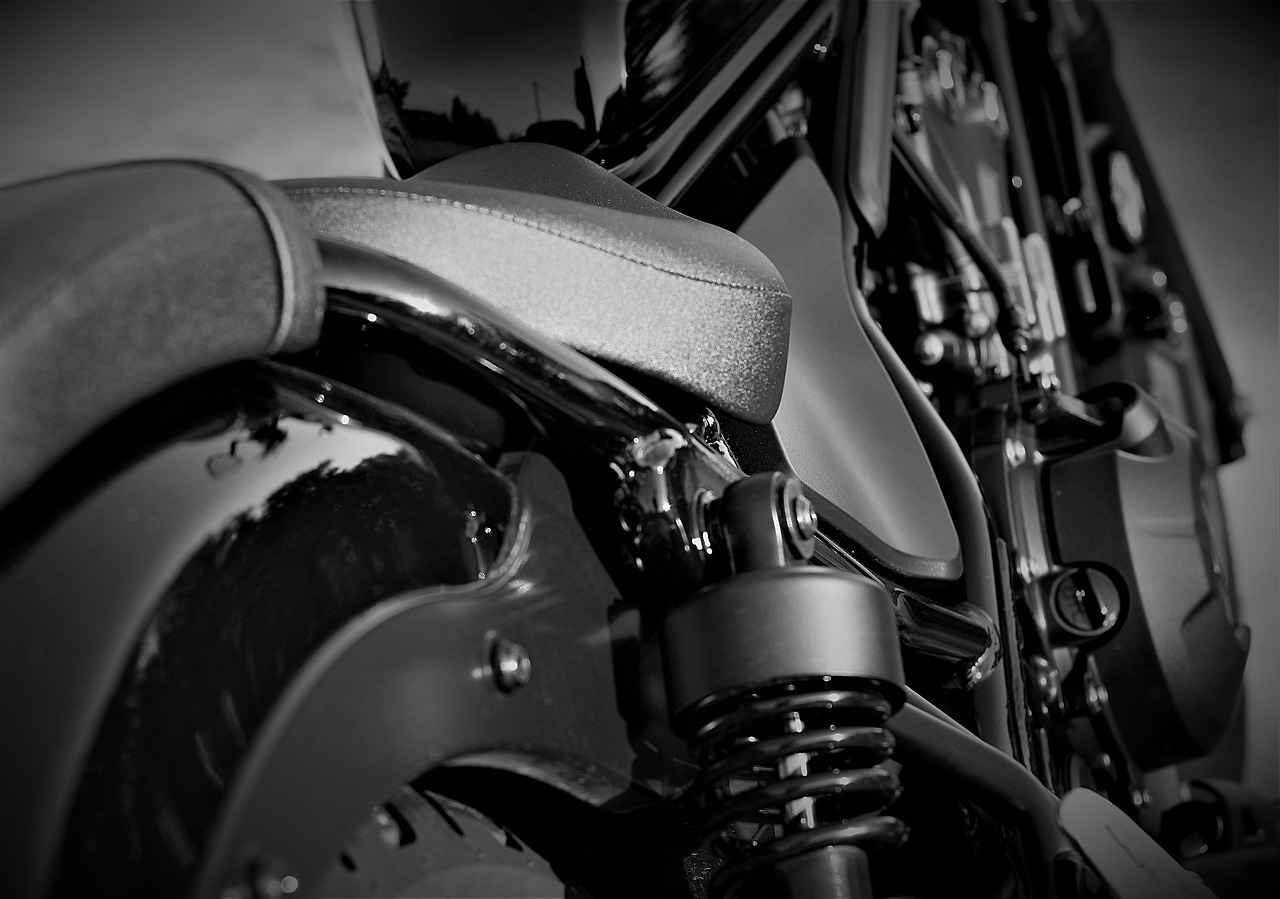The longevity of Honda Accord hybrid batteries is a crucial aspect for both potential buyers and current owners. Understanding this lifespan helps set realistic expectations regarding performance and replacement. In this article, we will delve into the average lifespan, factors affecting battery longevity, maintenance tips, warranty coverage, and signs that indicate when a battery may need replacement.
The average lifespan of a Honda Accord hybrid battery typically ranges from 8 to 10 years or around 100,000 to 150,000 miles. However, this can vary based on several factors, including driving conditions and maintenance practices. Knowing this average can help owners plan for future battery replacements.
Several key factors influence the lifespan of hybrid batteries:
- Driving Habits: Aggressive driving, frequent short trips, and high-speed driving can accelerate battery depletion.
- Climate: Extreme temperatures, whether hot or cold, can negatively impact battery efficiency and longevity.
- Maintenance Practices: Regular maintenance, including software updates and periodic battery checks, can significantly extend battery life.
Aggressive acceleration and sudden braking can lead to increased energy consumption, which may shorten the battery’s lifespan. In contrast, smooth driving habits can enhance battery longevity by reducing stress on the battery system.
Extreme heat can cause batteries to degrade faster, while cold temperatures can reduce their efficiency. Owners in regions with extreme weather conditions should be particularly mindful of these impacts and consider protective measures.
To ensure optimal performance, consider the following maintenance tips:
- Keep the battery clean and free from corrosion.
- Check and maintain proper fluid levels.
- Schedule regular inspections with qualified technicians.
Understanding warranty coverage is essential for Honda Accord hybrid owners. Typically, the warranty covers defects in materials and workmanship, providing peace of mind regarding battery performance over time. Honda generally offers a warranty period of up to 8 years or 100,000 miles, depending on the model year and local regulations.
Recognizing the signs of battery decline can prevent unexpected breakdowns:
- Decreased Fuel Efficiency: A noticeable drop in fuel efficiency can indicate battery issues.
- Dashboard Warning Lights: Warning lights on the dashboard, especially the check engine or battery warning light, require immediate attention.
Proper disposal of old hybrid batteries is critical for environmental safety. Many manufacturers and local governments offer recycling programs, ensuring safe and eco-friendly disposal. Understanding local regulations is also vital, as improper disposal can lead to legal penalties and environmental harm.
In conclusion, understanding the lifespan and maintenance of Honda Accord hybrid batteries is essential for ensuring optimal performance and longevity. By being aware of the factors affecting battery life and following proper maintenance practices, owners can maximize the lifespan of their hybrid batteries.

What Is the Average Lifespan of Honda Accord Hybrid Batteries?
Understanding the average lifespan of Honda Accord hybrid batteries is essential for both potential buyers and current owners. This knowledge not only sets realistic expectations for performance but also informs about the timing of necessary replacements. Typically, the lifespan of these batteries ranges from 8 to 10 years or about 100,000 to 150,000 miles, depending on various factors.
Factors such as driving conditions, climate, and maintenance practices significantly influence battery longevity. Understanding these can help owners maximize their battery’s lifespan.
Several elements play a crucial role in determining how long a Honda Accord hybrid battery will last. These include:
- Driving Habits: Aggressive driving, frequent short trips, and high-speed driving can lead to faster battery depletion.
- Climate: Extreme temperatures, whether hot or cold, can adversely affect battery efficiency and lifespan.
- Maintenance Practices: Regular maintenance, such as software updates and battery checks, can prolong battery life.
Aggressive driving behaviors, such as rapid acceleration and hard braking, can lead to increased wear on the hybrid battery. Additionally, taking frequent short trips can prevent the battery from fully charging and discharging, which is necessary for optimal health.
Both extreme heat and cold can negatively impact battery performance. In hot climates, excessive heat can cause battery components to degrade faster, while in cold climates, the battery may struggle to maintain its charge. Thus, the environment in which the vehicle is primarily driven plays a significant role in battery longevity.
Regular maintenance is vital for ensuring the longevity of Honda Accord hybrid batteries. Simple practices, such as keeping the battery terminals clean and ensuring that the battery cooling system is functioning properly, can make a significant difference. Additionally, staying updated with software updates can help in optimizing battery performance.
Understanding the warranty coverage for Honda Accord hybrid batteries is essential for owners. Generally, the warranty covers defects in materials and workmanship, providing peace of mind for those concerned about battery performance over time.
Honda typically provides an extensive warranty period for hybrid batteries, often lasting up to 8 years or 100,000 miles, depending on the model year and local regulations. This warranty reflects the manufacturer’s confidence in their product and offers financial protection for owners.
Recognizing the signs that your Honda Accord hybrid battery may need replacement is crucial for maintaining vehicle reliability. Some common indicators include:
- Decreased Fuel Efficiency: A noticeable drop in fuel efficiency can signal that the battery is losing its effectiveness.
- Warning Lights on the Dashboard: Dashboard warning lights, especially the check engine light or battery warning light, should not be ignored.
Proper disposal of old hybrid batteries is essential for environmental safety. Many manufacturers and local governments offer recycling programs for hybrid batteries, ensuring that hazardous materials are handled responsibly.
Understanding local regulations regarding battery disposal is vital. Improper disposal can lead to legal penalties and environmental harm, making responsible ownership crucial.

What Factors Affect Battery Longevity?
The longevity of hybrid batteries is a critical concern for Honda Accord owners. Understanding the various factors that influence battery lifespan can help you make informed decisions regarding maintenance and usage. Below, we delve into the key elements that affect the longevity of hybrid batteries.
Several factors influence the lifespan of hybrid batteries, including driving conditions, climate, and maintenance practices. Each of these elements plays a significant role in determining the overall durability and efficiency of the battery.
Your driving style can have a profound impact on the longevity of your hybrid battery. For instance, aggressive driving—characterized by rapid acceleration and frequent braking—can lead to quicker battery depletion. Additionally, frequent short trips do not allow the battery to fully recharge, which may also shorten its lifespan. On the other hand, consistent highway driving tends to be less taxing on the battery, promoting better longevity.
Extreme weather conditions can significantly affect the performance and lifespan of hybrid batteries. Hot climates can cause batteries to overheat, leading to faster degradation of battery cells. Conversely, cold weather can reduce battery efficiency, as chemical reactions within the battery slow down. Therefore, understanding your local climate and taking necessary precautions can help maintain battery health.
Regular maintenance is essential for extending the life of your hybrid battery. This includes:
- Routine battery checks: Periodic inspections can identify potential issues before they escalate.
- Software updates: Keeping your vehicle’s software up to date can optimize battery performance.
- Proper charging techniques: Following recommended charging practices can prevent overcharging and excessive discharge.
By adhering to these maintenance tips, you can significantly enhance the longevity of your hybrid battery.
The quality of the battery itself and the technology used in its construction are also crucial factors. Newer models of hybrid batteries often utilize advanced materials that improve durability and performance. High-quality batteries are typically designed to withstand various stresses, which can lead to a longer lifespan compared to older or lower-quality alternatives.
The frequency with which you drive your vehicle can also influence battery longevity. Vehicles that are driven regularly tend to maintain better battery health compared to those that sit idle for extended periods. Consistent usage allows the battery to cycle through its charge and discharge processes, which is essential for maintaining its overall health.
Other environmental factors, such as altitude and humidity, can also play a role in battery performance. High altitudes may affect battery efficiency due to lower air pressure, while high humidity can lead to corrosion of battery terminals. Being aware of these factors can help you take appropriate measures to protect your battery.
In conclusion, understanding the various factors that affect the longevity of hybrid batteries is essential for Honda Accord owners. By being mindful of driving habits, climate conditions, maintenance practices, and the quality of the battery, you can significantly enhance the lifespan and performance of your hybrid vehicle’s battery.
Driving Habits and Their Impact
When it comes to the longevity of hybrid batteries in vehicles like the Honda Accord, driving habits play a pivotal role. Understanding how various driving behaviors can affect battery performance is essential for both current owners and prospective buyers.
The way you drive can significantly influence the lifespan of your hybrid battery. Factors such as aggressive driving, frequent short trips, and high-speed driving can lead to faster battery depletion. Here’s a closer look at how these habits impact battery health:
- Aggressive Driving: Sudden acceleration and hard braking can create excess strain on the battery. This driving style not only decreases fuel efficiency but also accelerates wear on the battery components, leading to a shorter lifespan.
- Frequent Short Trips: Taking short trips can prevent the battery from fully charging and discharging. Hybrid batteries are designed to operate optimally when they go through complete cycles. Frequent short trips can lead to incomplete charging cycles, which may shorten the battery’s overall life.
- High-Speed Driving: Driving at high speeds often requires more power from the battery, which can lead to quicker depletion. The battery is put under additional stress, which can result in a reduced lifespan over time.
Consistently poor driving habits can lead to a range of long-term effects on your hybrid battery:
- Increased Maintenance Costs: A battery that depletes faster will require more frequent maintenance and potential replacements, leading to increased costs over time.
- Reduced Vehicle Performance: As the battery ages prematurely due to poor driving habits, the overall performance of the hybrid vehicle may decline, affecting acceleration and fuel efficiency.
- Environmental Impact: A battery that does not last as long due to aggressive driving contributes to more waste and environmental concerns, as batteries contain materials that can be harmful if not disposed of properly.
Improving your driving habits can significantly enhance the lifespan of your Honda Accord’s hybrid battery. Here are some practical tips:
- Practice Smooth Acceleration: Gradually accelerating instead of sudden bursts can help maintain battery health.
- Avoid Short Trips: Whenever possible, combine errands into a single trip to allow the battery to operate through complete charging cycles.
- Drive at Moderate Speeds: Keeping your speed within moderate limits can reduce stress on the battery and improve fuel efficiency.
By adopting these practices, you can not only extend the lifespan of your hybrid battery but also enhance your driving experience and contribute to a more sustainable environment.
How Does Climate Affect Battery Performance?
Understanding the impact of climate on battery performance is essential for Honda Accord hybrid owners. Extreme temperatures, whether high or low, can significantly affect the efficiency and lifespan of hybrid batteries. This section delves into how these climatic conditions present unique challenges for battery performance.
Hybrid batteries are designed to operate within a specific temperature range. Heat and cold can both lead to a decline in battery performance, affecting not just efficiency but also longevity.
In hot climates, the internal components of hybrid batteries can become overheated. This overheating can lead to:
- Accelerated chemical reactions: High temperatures can speed up the degradation of battery materials, leading to a shorter lifespan.
- Increased self-discharge rates: Batteries tend to lose charge more quickly when exposed to extreme heat, reducing overall efficiency.
- Potential for thermal runaway: In severe cases, overheating can cause a dangerous condition known as thermal runaway, which can lead to battery failure or even fires.
Conversely, cold weather also poses challenges:
- Reduced chemical activity: Low temperatures can slow down the chemical reactions within the battery, leading to decreased power output and efficiency.
- Increased energy consumption: Drivers may notice that their vehicle requires more energy to operate in cold weather, which can strain the battery further.
- Risk of freezing: In extreme cold, the electrolyte in the battery can freeze, leading to potential damage and decreased performance.
To ensure optimal battery performance regardless of climate, consider the following strategies:
- Parking in shaded or heated areas: Whenever possible, park your Honda Accord in a garage or shaded area to protect it from extreme heat. In winter, consider using a garage or heated space to prevent freezing.
- Regular maintenance checks: Schedule regular inspections of your hybrid battery to ensure it is functioning correctly and to identify any potential issues early.
- Utilizing battery warmers: In colder climates, battery warmers can help maintain optimal temperatures, ensuring the battery remains functional and efficient.
In summary, understanding how climate affects hybrid battery performance is crucial for Honda Accord owners. Both extreme heat and cold can lead to significant challenges, impacting efficiency and longevity. By implementing practical strategies, owners can help mitigate these effects and ensure their hybrid batteries remain in optimal condition.
Maintenance Practices That Extend Battery Life
When it comes to ensuring the longevity of your Honda Accord hybrid battery, maintenance practices play a critical role. Regular upkeep not only helps in enhancing the battery’s lifespan but also guarantees optimal performance throughout its usage. Below, we delve into essential maintenance practices that can significantly extend the life of your hybrid battery.
Maintaining your hybrid battery is essential for several reasons. Firstly, it helps identify potential issues before they escalate into major problems, which can lead to costly repairs or replacements. Secondly, routine checks and services ensure the battery operates efficiently, thereby improving fuel economy and overall vehicle performance.
- Regular Software Updates: Keeping the vehicle’s software updated is crucial. Manufacturers often release updates that enhance battery management systems, ensuring optimal charging and discharging cycles.
- Battery Inspections: Periodic inspections can help detect any signs of wear or damage. Professionals can check for corrosion, loose connections, and overall battery health.
- Temperature Management: Extreme temperatures can adversely affect battery performance. Parking in shaded areas during hot weather or in garages during cold weather can help maintain optimal operating conditions.
- Driving Habits: Adopting smoother driving habits can reduce stress on the battery. Avoiding rapid acceleration and heavy braking can significantly enhance battery life.
- Charging Practices: Regularly charging the battery and avoiding deep discharges can prevent unnecessary wear. Aim to keep the battery charged between 20% and 80% for optimal health.
Environmental factors such as climate and driving conditions can significantly influence battery performance. For instance, hot climates can lead to overheating, while extremely cold temperatures can cause the battery to lose charge more quickly. Regular maintenance checks can help mitigate these effects, ensuring the battery remains in good condition regardless of external conditions.
While DIY maintenance is beneficial, seeking professional help for comprehensive battery checks is advisable. Trained technicians can provide a thorough assessment and recommend specific actions tailored to your vehicle’s needs. They can also perform software updates and ensure that all components are functioning correctly.
- Keep the Battery Clean: Regularly cleaning the battery terminals and surrounding area can prevent corrosion and ensure efficient operation.
- Monitor Battery Performance: Keeping track of fuel efficiency and battery performance can help you notice any changes that may indicate a problem.
- Follow Manufacturer Guidelines: Always refer to the owner’s manual for specific maintenance recommendations and adhere to the manufacturer’s guidelines for battery care.
In summary, maintaining your Honda Accord hybrid battery is vital for its longevity and performance. By implementing these practices, you can ensure that your hybrid vehicle remains reliable and efficient for years to come. Regular maintenance not only saves you money in the long run but also contributes to a more sustainable driving experience.
Battery Quality and Technology
The performance and durability of hybrid batteries, such as those found in the Honda Accord, are heavily influenced by battery quality and the technology used in their construction. Understanding these elements is crucial for both current owners and potential buyers who wish to maximize their vehicle’s efficiency and lifespan.
Battery quality is a significant factor that determines how long a hybrid battery will last. High-quality batteries are typically made with advanced materials, which not only enhance their durability but also improve their overall performance. For instance, manufacturers often utilize lithium-ion technology, which offers better energy density and lower self-discharge rates compared to older nickel-metal hydride batteries. This means that a well-constructed battery can maintain its charge longer and withstand more charging cycles before showing signs of degradation.
The technology used in battery design has evolved significantly over the years. Newer models of hybrid vehicles, including the Honda Accord, incorporate sophisticated battery management systems (BMS) that monitor and regulate the battery’s performance. These systems can optimize charging and discharging processes, ensuring that the battery operates within safe parameters. This not only enhances the battery’s lifespan but also improves the vehicle’s overall fuel efficiency.
Modern hybrid batteries often utilize advanced materials such as graphene and nickel cobalt manganese (NCM) to enhance performance. Graphene, for example, is known for its exceptional conductivity and strength, which can lead to faster charging times and improved energy output. Similarly, NCM batteries provide a balance of energy density, longevity, and thermal stability, making them ideal for hybrid applications.
Battery design also plays a crucial role in its longevity. Manufacturers are increasingly focusing on creating batteries that are not only efficient but also thermally managed. Proper thermal management prevents overheating, which can significantly shorten battery life. This is particularly important in hybrid vehicles that experience varying loads and temperatures during operation.
While battery quality and technology are essential, regular maintenance cannot be overlooked. Performing routine checks and software updates can help identify potential issues before they escalate. For instance, ensuring that the battery cooling system is functioning correctly can prevent overheating and prolong battery life. Additionally, keeping the battery terminals clean and free from corrosion can enhance connectivity and performance.
The future of hybrid battery technology looks promising, with ongoing research aimed at developing even more efficient and durable batteries. Innovations such as solid-state batteries are on the horizon, which could revolutionize the industry by offering higher energy densities and improved safety features. As these technologies become mainstream, they will likely further enhance the lifespan and performance of hybrid vehicles like the Honda Accord.

What Is the Warranty Coverage for Hybrid Batteries?
When it comes to owning a Honda Accord hybrid, understanding the warranty coverage for its hybrid batteries is vital. This knowledge not only reflects the manufacturer’s confidence in their product but also offers potential financial protection for owners. As hybrid technology continues to evolve, so do the warranties associated with these vehicles, making it essential for both current and prospective owners to stay informed.
The warranty coverage for hybrid batteries in the Honda Accord typically includes defects in materials and workmanship. This means that if the battery fails due to manufacturing issues, the owner is protected under the warranty. Understanding the specifics of this coverage can provide peace of mind, especially for those who rely heavily on their hybrid vehicles for daily commuting.
Honda generally offers a comprehensive warranty period for hybrid batteries, which can last up to 8 years or 100,000 miles, depending on the model year and local regulations. This extensive coverage highlights the manufacturer’s commitment to quality and durability, reassuring owners that their investment is safeguarded for a significant period.
The warranty typically covers a range of issues, including:
- Battery defects: Any manufacturing flaws that affect performance.
- Performance issues: Problems that arise due to faulty components.
- Replacement costs: In some cases, the warranty may cover the costs associated with battery replacement.
However, it is important for owners to read the fine print of their warranty, as certain conditions and exclusions may apply.
While the warranty provides substantial coverage, there are some limitations to consider:
- Normal wear and tear: The warranty does not cover battery degradation due to regular usage.
- Improper maintenance: Neglecting recommended maintenance practices can void the warranty.
- Environmental factors: Damage caused by extreme weather conditions may not be covered.
To ensure that the warranty remains valid, owners should:
- Follow maintenance schedules: Adhere to the manufacturer’s recommended maintenance guidelines.
- Keep records: Maintain detailed records of all services and repairs performed on the vehicle.
- Consult professionals: Seek assistance from certified Honda technicians for any battery-related issues.
If a battery issue arises, owners should follow these steps to initiate a warranty claim:
1. Contact your local Honda dealership.2. Provide documentation of the battery issue.3. Submit any required service records.4. Allow the dealership to inspect the battery.
By understanding the warranty coverage for Honda Accord hybrid batteries, owners can make informed decisions and maximize their vehicle’s performance. This knowledge not only enhances the ownership experience but also ensures that potential issues are addressed promptly and effectively.
What Does the Warranty Cover?
The warranty for Honda Accord hybrid batteries is an essential aspect that every owner should understand. It not only reflects the manufacturer’s confidence in the product but also provides crucial financial protection for vehicle owners. In this section, we will delve into the specifics of what the warranty covers, how long it lasts, and why it matters for your hybrid vehicle.
The warranty for Honda Accord hybrid batteries typically covers defects in materials and workmanship. This means that if there are any issues that arise due to manufacturing faults, such as problems with battery cells or connections, the warranty will usually take care of the costs associated with repairs or replacements. This coverage offers peace of mind for owners concerned about battery performance and longevity over time.
Moreover, the warranty ensures that if your battery fails prematurely due to these defects, you won’t bear the financial burden of replacing it. It is important to note, however, that the warranty does not cover damage caused by external factors such as accidents, improper installation, or lack of maintenance. Therefore, maintaining your vehicle according to the manufacturer’s guidelines is crucial for keeping the warranty valid.
Honda generally provides an extensive warranty period for hybrid batteries, often lasting up to 8 years or 100,000 miles, depending on the model year and local regulations. This long warranty period reflects Honda’s commitment to quality and reliability in their hybrid technology. It’s advisable for owners to check the specific terms of their warranty, as these can vary based on the state or country of purchase.
Understanding the warranty coverage is vital for several reasons:
- Financial Protection: Knowing what is covered can save you significant expenses in case of battery failure.
- Informed Decision-Making: Awareness of warranty terms helps in making informed decisions regarding maintenance and battery care.
- Enhanced Resale Value: A transferable warranty can increase the resale value of your vehicle, making it more appealing to potential buyers.
In addition to the warranty coverage, it’s essential for owners to keep records of all maintenance and service performed on the vehicle. This documentation can be critical if a warranty claim is needed in the future, as it demonstrates that the vehicle has been properly cared for.
If you suspect that your hybrid battery may need replacement, it’s crucial to act quickly. Look for signs such as decreased fuel efficiency or warning lights on the dashboard. If your battery falls under the warranty coverage, contact your local Honda dealership to initiate a claim. They will guide you through the process and help you understand your options.
In conclusion, being well-informed about the warranty coverage for your Honda Accord hybrid battery is essential for ensuring the longevity and performance of your vehicle. By understanding what is covered, how long the warranty lasts, and the importance of regular maintenance, you can enjoy the benefits of hybrid technology with confidence.
How Long Is the Warranty Period?
When considering the purchase of a Honda Accord Hybrid, one of the critical factors to evaluate is the warranty period for the hybrid battery. Understanding this aspect is essential for both current owners and potential buyers, as it provides insights into the manufacturer’s confidence in their product and the protection available for consumers.
The warranty for Honda Accord hybrid batteries is designed to offer peace of mind to owners. Generally, Honda provides an extensive warranty that can last up to 8 years or 100,000 miles, depending on the model year and local regulations. This substantial coverage reflects Honda’s commitment to quality and reliability, ensuring that owners can drive with confidence.
The warranty typically covers defects in materials and workmanship. This means that if the battery fails due to manufacturing issues, Honda will either repair or replace it at no cost to the owner. It’s important for owners to keep all maintenance records, as this can help in the event of a warranty claim.
While the warranty provides significant coverage, there are limitations. For instance, the warranty does not cover damage caused by accidents, abuse, or improper maintenance. Additionally, the warranty may have specific conditions that must be met, such as routine inspections at authorized service centers. Understanding these limitations can help owners avoid unexpected costs.
It’s essential to note that the warranty period can vary based on the model year of the Honda Accord Hybrid. For example, newer models may come with extended warranty options or additional coverage features compared to older versions. Owners should consult their owner’s manual or contact a local Honda dealer for specific details regarding their vehicle.
- Regular Maintenance: Schedule regular maintenance checks to ensure that the hybrid system is functioning correctly.
- Use Authorized Service Centers: Have your vehicle serviced at authorized Honda service centers to maintain warranty validity.
- Document Everything: Keep detailed records of all maintenance and repairs performed on the vehicle.
Once the warranty period has expired, owners are responsible for any battery replacements or repairs. Understanding the potential costs involved in battery replacement is crucial. Typically, hybrid battery replacements can be expensive, ranging from $2,000 to $4,000 depending on the model and labor costs. However, many owners find that their batteries can last well beyond the warranty period with proper care and maintenance.
For those concerned about battery longevity, Honda offers extended warranty options that can provide additional coverage beyond the standard period. These plans can help mitigate the financial burden of battery replacement and offer further peace of mind for owners. It’s advisable to explore these options at the time of purchase or before the original warranty expires.
In summary, understanding the warranty period for Honda Accord hybrid batteries is essential for ensuring a positive ownership experience. With coverage lasting up to 8 years or 100,000 miles, owners can drive with confidence, knowing that they are protected against potential battery failures. By adhering to maintenance guidelines and being aware of warranty limitations, owners can maximize the lifespan of their hybrid battery.

Signs Your Hybrid Battery Needs Replacement
As a Honda Accord hybrid owner, it is essential to be aware of the signs that indicate your hybrid battery may need replacement. Timely recognition of these signs can help you avoid unexpected breakdowns and costly repairs, ensuring your vehicle remains reliable and efficient. In this section, we will delve into the key indicators that suggest your hybrid battery is nearing the end of its lifespan.
- Decreased Fuel Efficiency: If you notice a significant drop in your vehicle’s fuel efficiency, it may be a sign that your hybrid battery is losing its ability to hold a charge. This can lead to increased fuel consumption and a noticeable impact on your wallet.
- Dashboard Warning Lights: Pay attention to any dashboard warning lights, especially the check engine light or the battery warning light. These indicators often signify issues with the hybrid battery and should prompt immediate inspection by a qualified technician.
- Strange Noises: Unusual sounds coming from the battery area, such as clicking or buzzing, can indicate that the battery is malfunctioning. It’s crucial to have these noises checked to prevent further damage.
- Frequent Charging: If you find yourself needing to charge your hybrid battery more often than before, this could be a sign of deterioration. A healthy hybrid battery should maintain its charge effectively over time.
- Age of the Battery: Consider the age of your hybrid battery. Most Honda Accord hybrid batteries have a lifespan of approximately 8 to 10 years. If your battery is approaching this age, it may be wise to schedule a diagnostic check.
Regular maintenance and monitoring can help you keep track of your hybrid battery’s health. Here are some practical tips:
- Routine Inspections: Schedule regular inspections with a certified Honda technician to assess the condition of your battery. These checks can identify potential issues before they become major problems.
- Battery Health Reports: Some vehicles come equipped with onboard diagnostics that provide battery health reports. Familiarize yourself with these features and use them to monitor performance.
- Software Updates: Ensure your vehicle’s software is up to date, as manufacturers often release updates that can improve battery management and efficiency.
If you recognize any of the signs mentioned above, it is crucial to take action promptly:
- Consult a Professional: Contact a qualified technician or your local Honda dealership for a comprehensive battery evaluation.
- Consider Replacement Options: If your battery does need replacement, explore your options carefully. Look for warranties or incentives that may be available to help offset costs.
- Stay Informed: Keep yourself updated on hybrid battery technology and maintenance tips to ensure your vehicle remains in optimal condition.
By staying vigilant and informed, you can ensure that your Honda Accord hybrid continues to perform reliably. Recognizing the signs of a failing battery early can save you from unexpected inconveniences and expenses, allowing you to enjoy the benefits of hybrid driving for years to come.
Decreased Fuel Efficiency
When it comes to maintaining the performance of your Honda Accord Hybrid, can be a significant indicator of underlying issues, particularly with the hybrid battery. As the battery ages, its ability to hold a charge diminishes, leading to a noticeable drop in fuel economy. This decline in efficiency is often one of the first signs that your hybrid battery may be losing its effectiveness, prompting the need for a closer inspection.
The hybrid battery in your Honda Accord plays a crucial role in the vehicle’s overall fuel efficiency. When the battery is functioning optimally, it assists the gasoline engine, allowing the car to use less fuel, especially during stop-and-go driving conditions. However, as the battery begins to fail, it can no longer provide the necessary power, forcing the gasoline engine to work harder and consume more fuel. This results in a decrease in fuel efficiency, which can be frustrating for drivers who rely on their vehicle for daily commutes and long journeys.
- Increased Frequency of Charging: If you find yourself needing to charge the battery more often than before, it may be a sign that the battery’s capacity is diminishing.
- Longer Charging Times: A battery that takes longer to charge can indicate that it is struggling to hold its charge effectively.
- Erratic Power Delivery: If you notice inconsistent acceleration or power delivery, this can be a symptom of a failing hybrid battery.
If you suspect that your hybrid battery is affecting your Honda Accord’s fuel efficiency, it’s essential to conduct a thorough diagnosis. Here are some steps you can take:
- Check for Warning Lights: Keep an eye on your dashboard for any warning lights that may indicate battery issues.
- Monitor Fuel Economy: Keep track of your fuel consumption over time. If you notice a significant drop, it’s time to investigate further.
- Consult a Professional: If you are unsure about the battery’s condition, it’s advisable to seek assistance from a qualified technician who can run diagnostic tests.
Maintaining your hybrid battery’s health is crucial for ensuring optimal fuel efficiency. Here are some practical tips:
- Regular Maintenance: Schedule regular maintenance checks to ensure your hybrid battery is in good condition.
- Avoid Extreme Temperatures: Try to park your vehicle in shaded areas or garages to protect the battery from extreme heat or cold.
- Drive Smoothly: Adopt gentle driving habits to reduce stress on the hybrid battery and improve fuel efficiency.
Ultimately, if you continue to experience decreased fuel efficiency despite taking preventive measures, it may be time to consider replacing the hybrid battery. Consult your local Honda dealership or a certified technician to discuss your options, including potential warranties that may cover battery replacement.
In summary, is a critical sign that your Honda Accord Hybrid battery may be losing its effectiveness. By understanding the implications of this decrease, recognizing the signs of battery issues, and taking preventive measures, you can maintain your vehicle’s performance and ensure a reliable driving experience.
Warning Lights on the Dashboard
When driving a Honda Accord Hybrid, it’s essential to stay vigilant about the dashboard warning lights. These indicators serve as an early warning system, alerting drivers to potential issues with the vehicle, particularly concerning the hybrid battery. Among these lights, the check engine light and the battery warning light are crucial signals that should never be ignored.
The presence of warning lights on the dashboard signifies that something requires attention. The check engine light can illuminate for various reasons, from minor issues like a loose gas cap to more serious problems involving the hybrid battery system. On the other hand, the battery warning light specifically indicates that the hybrid battery may not be functioning optimally.
If either of these warning lights appears, it is imperative to seek the assistance of a qualified technician promptly. Ignoring these warnings can lead to more severe problems, including reduced fuel efficiency, loss of power, and even complete battery failure. A technician can diagnose the issue accurately, ensuring that your vehicle remains reliable and efficient.
- Battery Degradation: Over time, hybrid batteries can lose their capacity, leading to warning lights illuminating on the dashboard.
- Electrical Issues: Problems with wiring or connections can trigger warning lights, indicating that the battery is not receiving adequate power.
- Software Glitches: Sometimes, the vehicle’s software may need updates to accurately reflect the battery’s condition.
Upon noticing a warning light, follow these steps:
- Check the Owner’s Manual: Refer to the manual for specific information regarding the warning lights.
- Assess the Situation: If the vehicle is driving normally, you may have a bit of time. However, if you notice performance issues, stop driving immediately.
- Visit a Technician: Schedule an appointment with a qualified technician to diagnose and resolve the issue.
To minimize the likelihood of encountering warning lights, consider the following preventive measures:
- Regular Maintenance: Schedule routine check-ups to catch potential issues before they escalate.
- Battery Health Monitoring: Keep an eye on your hybrid battery’s performance and replace it when necessary.
- Software Updates: Ensure that your vehicle’s software is updated to maintain optimal performance.
In conclusion, understanding the significance of warning lights, particularly the check engine and battery warning lights, is vital for Honda Accord Hybrid owners. By paying attention to these indicators, seeking timely help from qualified technicians, and adhering to preventive maintenance practices, you can enhance the longevity and efficiency of your hybrid vehicle.

How to Properly Dispose of Old Hybrid Batteries?
When it comes to the proper disposal of old hybrid batteries, it is crucial to recognize the environmental implications and regulatory requirements associated with these actions. As hybrid vehicles become more prevalent, the importance of responsible battery disposal cannot be overstated. This article will delve into the best practices for disposing of old hybrid batteries, the risks of improper disposal, and the available recycling options.
The environmental safety and compliance with regulations surrounding battery disposal are paramount. Hybrid batteries contain hazardous materials such as lead, cadmium, and lithium, which can be detrimental to the environment if not handled correctly. When these materials leach into the soil and water supply, they can pose serious health risks to both humans and wildlife.
- Environmental Pollution: Improperly discarded batteries can leak harmful chemicals into the ground, leading to soil and water contamination.
- Health Hazards: Exposure to toxic materials can result in serious health issues, including respiratory problems and neurological damage.
- Legal Consequences: Many regions have strict laws regarding battery disposal, and violations can result in significant fines and penalties.
Many manufacturers and local governments have initiated recycling programs specifically for hybrid batteries. To find a program near you, consider the following steps:
- Visit your local government’s website for information on recycling initiatives.
- Check with the dealership where you purchased your hybrid vehicle; they often have take-back programs.
- Search for local recycling centers that accept hybrid batteries.
To ensure that your old hybrid battery is disposed of responsibly, follow these best practices:
- Do Not Throw Batteries in Regular Trash: Always avoid disposing of hybrid batteries in regular waste containers.
- Transport Safely: When taking your battery to a recycling facility, ensure it is secured and upright to prevent leaks.
- Keep Batteries Cool: Store batteries in a cool, dry place until you can dispose of them, as extreme temperatures can cause them to degrade and leak.
If local recycling options are limited, consider contacting the manufacturer of your hybrid vehicle. Many companies offer mail-in recycling programs or can direct you to authorized disposal sites. Additionally, some auto parts stores provide battery recycling services.
Each jurisdiction has its own set of regulations regarding battery disposal. Familiarizing yourself with these laws is essential to ensure compliance and protect the environment. Check with your local environmental protection agency or waste management authority for specific guidelines.
In summary, the proper disposal of old hybrid batteries is not just a matter of compliance; it is a vital component of environmental stewardship. By following the recommended practices and utilizing available recycling programs, you can contribute to a safer and cleaner planet. Always prioritize responsible disposal to protect both the environment and public health.
Recycling Programs and Initiatives
As the automotive industry continues to evolve towards sustainability, the importance of responsible battery disposal becomes increasingly significant. Hybrid batteries, which power vehicles like the Honda Accord, contain materials that can be harmful to the environment if not disposed of properly. Fortunately, many manufacturers and local governments have recognized this issue and have implemented recycling programs designed to facilitate the safe and eco-friendly disposal of hybrid batteries.
Recycling programs are crucial for several reasons:
- Environmental Protection: Hybrid batteries contain toxic substances such as lead and cadmium. Proper recycling prevents these materials from contaminating soil and water.
- Resource Recovery: Many components of hybrid batteries, including lithium and nickel, can be recovered and reused in the production of new batteries, reducing the need for raw materials.
- Regulatory Compliance: Many regions have strict regulations regarding battery disposal. Participating in recycling programs helps individuals and businesses comply with these laws.
Recycling programs for hybrid batteries typically involve several key steps:
- Collection: Many manufacturers offer collection points where consumers can drop off their used batteries. Some local governments also organize collection events.
- Transportation: Once collected, the batteries are transported to specialized recycling facilities equipped to handle hazardous materials safely.
- Processing: At the recycling facility, batteries are disassembled, and valuable materials are extracted. These materials can then be reused in new batteries or other products.
Local governments often have their own recycling initiatives that complement manufacturer programs. It’s essential to:
- Research Local Options: Check your local government’s website for information on battery recycling programs and collection events.
- Follow Guidelines: Adhere to any specific guidelines provided by local authorities regarding battery disposal to ensure compliance and safety.
- Stay Informed: Participate in community discussions about recycling to stay updated on best practices and new initiatives.
Participating in battery recycling programs offers numerous benefits:
- Peace of Mind: Knowing that you are disposing of your battery responsibly can provide peace of mind and contribute to environmental sustainability.
- Community Impact: By participating, you contribute to the overall health of your community and environment, promoting a culture of sustainability.
- Potential Incentives: Some programs may offer incentives, such as discounts on future battery purchases or other green initiatives.
In conclusion, the availability of recycling programs for hybrid batteries plays a vital role in promoting environmental sustainability and responsible waste management. By understanding how these programs work and actively participating in them, you can contribute to a healthier planet while ensuring that hazardous materials are disposed of safely.
Local Regulations for Battery Disposal
When it comes to battery disposal, understanding local regulations is essential for every vehicle owner, especially those with hybrid models like the Honda Accord. Improper disposal of batteries can not only lead to legal penalties but also result in significant environmental harm. This makes it crucial for responsible ownership and community awareness.
Local regulations regarding battery disposal are designed to protect both public health and the environment. Batteries contain hazardous materials, such as lead, cadmium, and lithium, which can leach into the soil and water supply if not disposed of properly. Compliance with these regulations ensures that:
- Environmental Protection: Preventing contamination of natural resources.
- Public Safety: Reducing risks associated with hazardous waste.
- Legal Compliance: Avoiding fines and penalties imposed by local authorities.
Regulations can vary significantly by region, but some common requirements include:
1. Mandatory recycling programs for batteries.2. Designated drop-off locations for hazardous waste.3. Restrictions on disposal methods, such as landfilling.4. Reporting requirements for businesses that handle batteries.
These regulations are often enforced by local environmental agencies, which provide resources and guidance on proper disposal methods.
To ensure compliance with local regulations, consider the following steps for responsible battery disposal:
- Utilize Recycling Programs: Many communities offer battery recycling programs. Check with your local waste management authority for details.
- Visit Authorized Collection Centers: Some retailers and automotive shops have designated drop-off points for used batteries.
- Participate in Community Events: Look for local events focused on hazardous waste disposal, where you can safely dispose of batteries.
Improper disposal of batteries can lead to severe consequences:
- Legal Penalties: Fines and sanctions for violating disposal regulations.
- Environmental Damage: Long-term contamination of land and water sources.
- Health Risks: Potential exposure to toxic materials for both humans and wildlife.
Staying informed about local regulations is vital for any vehicle owner. Here are some tips:
- Visit Local Government Websites: Most municipalities provide information on waste disposal regulations.
- Follow Environmental Organizations: Groups often share updates and resources regarding battery disposal.
- Consult Your Local Auto Dealer: They can provide guidance on proper disposal methods specific to your vehicle.
In conclusion, understanding local regulations regarding battery disposal is not just a matter of legal compliance; it is a crucial aspect of responsible vehicle ownership. By adhering to these regulations, you contribute to a healthier environment and ensure the safety of your community.
Frequently Asked Questions
- How long do Honda Accord hybrid batteries typically last?
The average lifespan of Honda Accord hybrid batteries is around 8 to 10 years, depending on various factors like driving habits and maintenance.
- What factors can affect the longevity of my hybrid battery?
Driving conditions, climate, and maintenance practices play a significant role in determining how long your hybrid battery will last. For instance, aggressive driving or extreme temperatures can accelerate battery wear.
- Is there a warranty on Honda Accord hybrid batteries?
Yes, Honda typically provides a warranty for hybrid batteries that lasts up to 8 years or 100,000 miles, ensuring coverage for defects in materials and workmanship.
- What are the signs that my hybrid battery needs replacement?
Look out for decreased fuel efficiency and warning lights on your dashboard, such as the check engine or battery warning light, which can indicate that your hybrid battery is losing its effectiveness.
- How should I dispose of my old hybrid battery?
It’s crucial to dispose of old hybrid batteries responsibly. Many manufacturers and local governments offer recycling programs to ensure safe and eco-friendly disposal.



